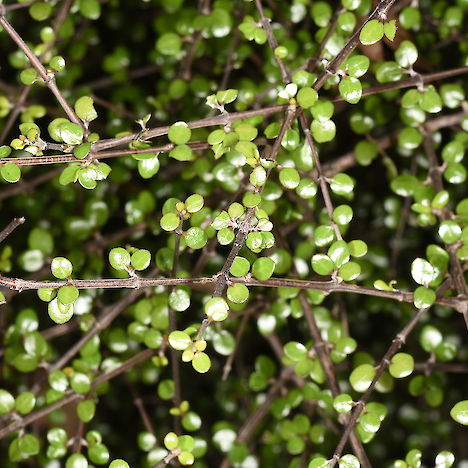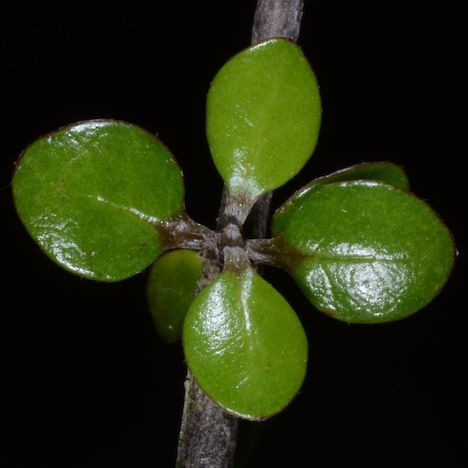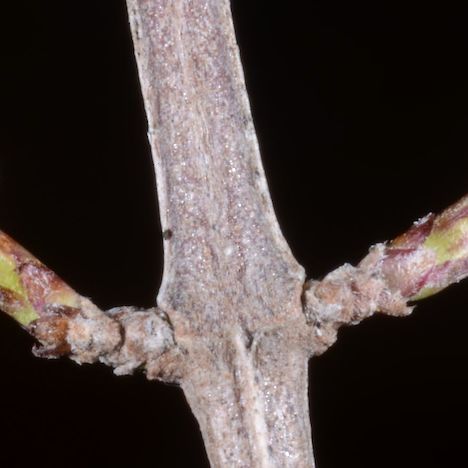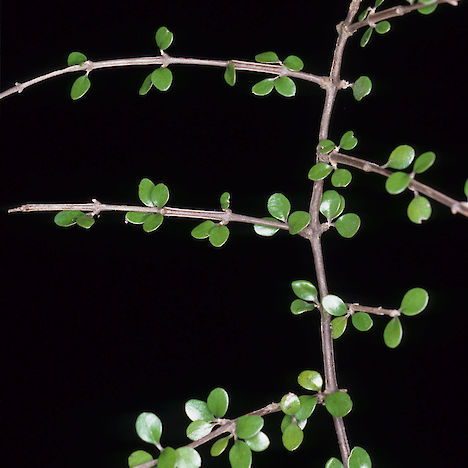Threat category:
Threatened: Nationally Endangered?Regions:
Nelson-TasmanDistribution:
Nelson
Key Features
- Divaricating shrub to 4 m tall with light brown bark on trunk.
- Branchlets have narrow, raised ridges on either side of the stem.
- Small, opposite leaves have reddened margins that are bright glossy green above and white underneath.
- Flowers are tiny and turn into small, fluffy seedheads, with seeds dispersed by wind.
Distribution and Habitat
- South Island, Northwest Nelson, locally distributed within the Hope River catchment
- Poorly drained flats and toe-slopes and along streams under open beech forest stands, where flooding and slumping is common.
Threats
- Habitat modification and loss.
- Regeneration failure due to competition with exotic grasses and weeds.
Management Opportunities
- Survey for new locations.
- Mark known sites.
- Protection of habitat – avoid afforestation of known sites.
- Propagate and re-establish in appropriate sites.
- Control exotic grasses by spraying if necessary.
- Ensure that forest owners are aware of potential habitats and can recognise the species.
Monitoring Options
- Check existing populations annually.
- Report new locations to DOC, NZPCN.
Further Information and Suppor
- New Zealand Plant Conservation Network (NZPCN). http://www.nzpcn.org.nz
- Goat control - Department of Conservation, Regional Councils.
- References
- Dopson et al. (1999). The conservation requirements of New Zealand’s nationally threatened vascular plants. Threatened Species Occasional Publication 13. Department of Conservation, Wellington.
- Wilson & Galloway (1993). Small-leaved shrubs of New Zealand. Manuka Press, Christchurch.
- Peter de Lange, Peter Heenan, David Norton, Jeremy Rolfe and John Sawyer (2010). Threatened Plants of New Zealand. Canterbury University Press, Christchurch. 472 pp.





